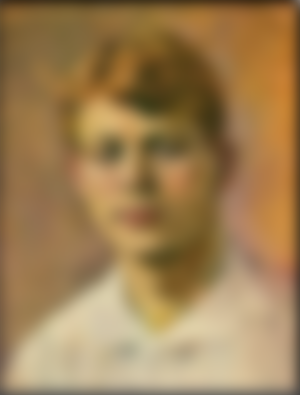
On this day in 1895, the Russian writer Sergei Alexandrovich Yesenin was born.
If you go once, don't turn around, because if you turn around, you have to come back, and I don't want you to come back leaving, "said Jesenjin, a poet with a reputation as a bohemian, who turned his soul into poetry.
And it was largely determined by the very life of the poet, say literary historians, growing up in the countryside, revolution, wandering, great passions and loves. What am I? Who am I? I'm just a dreamer, whose gaze fades into fog and mist, and I love you by the way, like I dream, like many others on that earth.

He came to Moscow from his native village of Konstantinova as a golden-haired boy. He studied at the City People's University and wrote. Russian folklore and customs were the main inspiration. His talent and freshness of poetic expression were recognized by prominent poets Aleksandar Blok and Sergej Gorodetski, who helped him improve his writing style and promote his literary work. In the capital, Jesenjin lived bohemian, mostly staying in taverns, small bars and canteens, where writers, actors and painters gathered during the revolution. He would sometimes recite the verses of his songs aloud.
"I left often. I turned around and came back. And nothing was the same, neither the landscapes, nor the people, nor me. I realized there was no need to come back, what was beautiful let it stay in dreams forever. It will last forever." , said Jesenjin. He also said that the reader in his verses should pay the most attention to lyrical feelings and forms. Immediately after the revolution, with a few other poets, Jesenjin conceived and began to promote a new poetic movement - imaginism. "In the storm and the storm near the misfortunes of all, with heavy losses and sad sorrow, to be natural, smiling and quiet is the greatest art in the world," are the verses from the song Black Man.

Women adored him as a man of rare beauty and as a talented poet. Isidora Duncan was among them.
According to the official police report, the great Russian poet committed suicide on December 28, 1925, at the Angleterre Hotel. He writes his funeral song with his own blood, and then straps himself from the suitcase to rage about the heating pipe and thus ends his life in hotel room number 5. This version of Yesenin's death was widely accepted until some more details appeared that could testify that everything was different.
Goodbye, buddy, goodbye
My breasts are guarding you, darling.
Parting is a sign of predestination,
The meeting is offered to us in the distance.
Goodbye, no squeeze, no voice,
Don't grieve me, frown -
It's not new to die before your class,
But life is not a novelty of law either.
This song, Jesenjin gave to his friend Wolf Ehrlich the night before his death, who that evening, with two other people, found himself in Jesenjin's room. The poet put the paper with the poem in the pocket of his friend's coat and told him not to hurry with reading, not to talk about the poem, and to read it tensely tomorrow. This detail that the poem reached Ehrlich in this way remained recorded only in his book, which he wrote a few years after Jesenjin's death.



Goodbye, friend, goodbye ... this is my favorite song of his, I admit that I love Chekhov the most, but this song by Segej is golden.